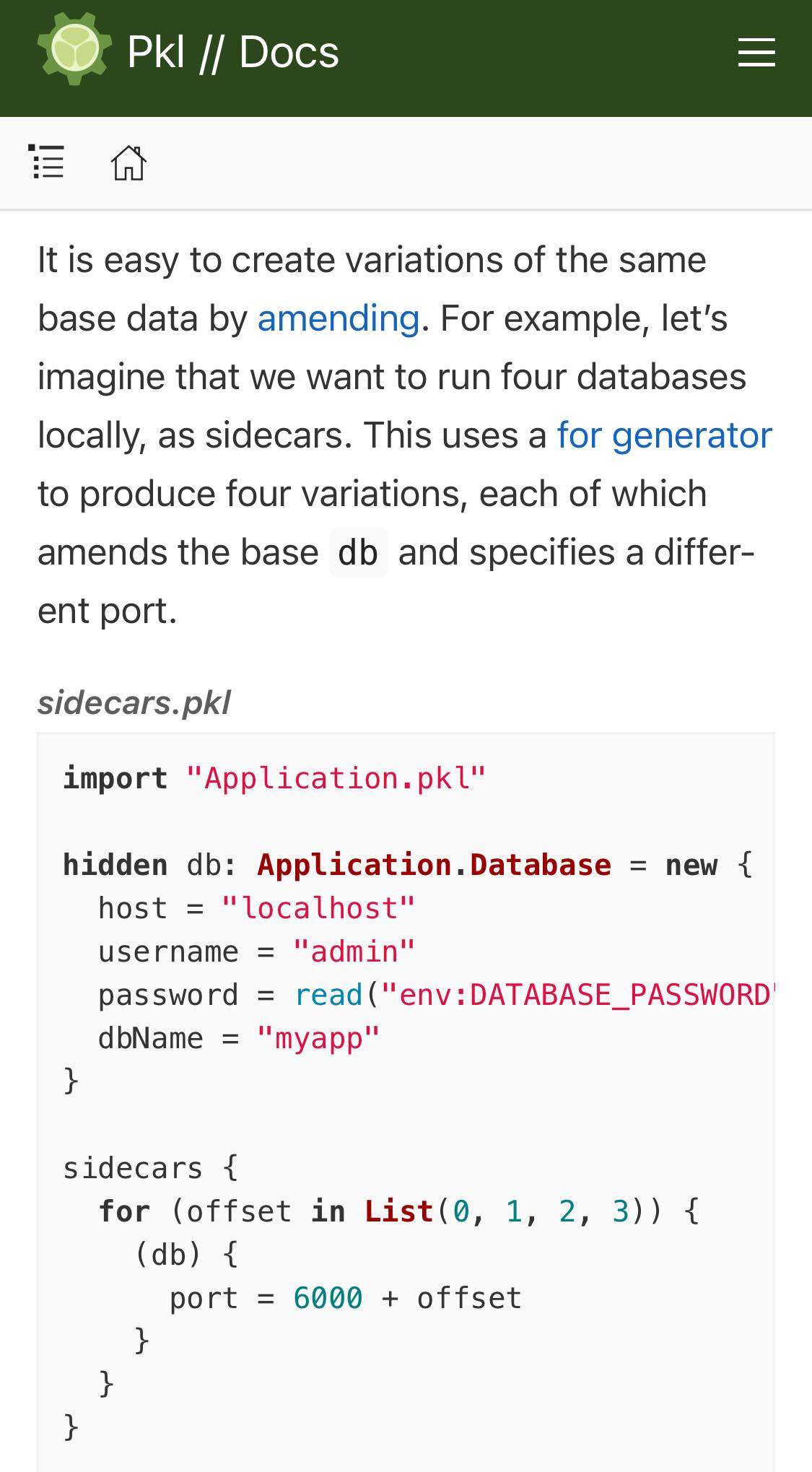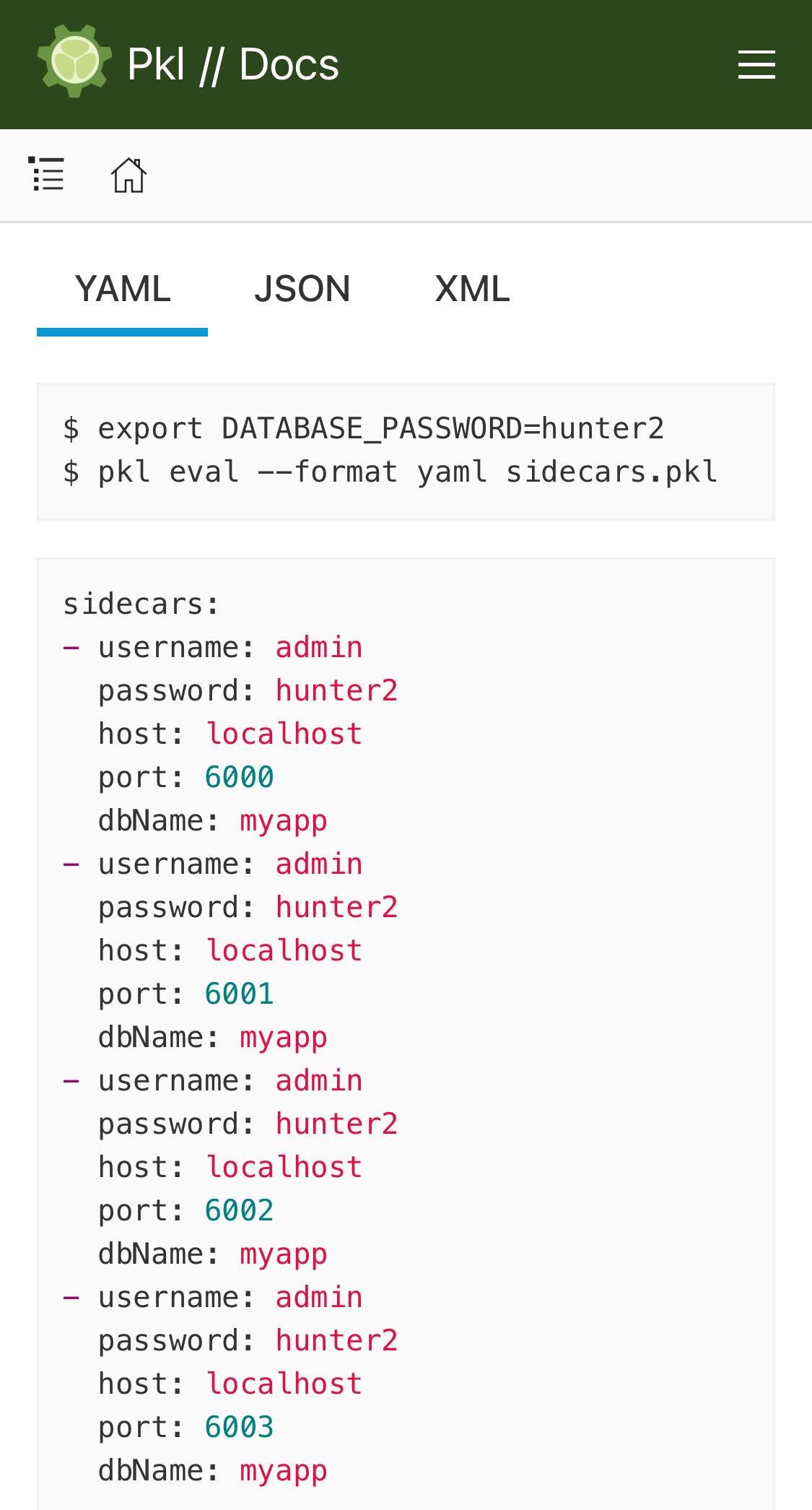Pkl is the new kid on the block.
Have you ever built a config for a modeling pipeline? Surely, if you’ve built a pipeline to do experiments you’ve wondered how you can quickly iterate through a bunch of different settings to see which model is the best for your use case.
Maybe you want to generate a list of hypothesis to test, and then compare and contrast them.
Like any good data scientist you’ve created a system to loop over some settings.
It’s the big challenge of data science: how do I configure something? Should I build this function to do one thing or should I build a development environment where I can explore a thousand things? If I build a development environment how do I know if all the things I’ve configured aren’t going to be moot in a few weeks or months?
I don’t have the answer to those questions. But perhaps how we design our configs can affect those design decisions.
Pkl is cool because it lets you do a for loop to output configs.
Here’s a basic config file per their docs:

And here’s that config looped and rendered:

Application to DS
I’m not 100% sure that this is any easier for a Python developer than just using ChatGPT to loop some parameters and spit out a bunch of yaml files. Because YAML does have some validation to it. And YAML has been around a long time.
Anything’s better than Python’s ConfigParser…yuck.
Reminds me of Protocol Buffers Documentation but honestly I don’t know much about this stuff. See Protobufs - Everything I don’t know
But it’s nice to see people are thinking about configs…
_________________________
Bryan lives somewhere at the intersection of faith, fatherhood, and futurism and writes about tech, books, Christianity, gratitude, and whatever’s on his mind. If you liked reading, perhaps you’ll also like subscribing: